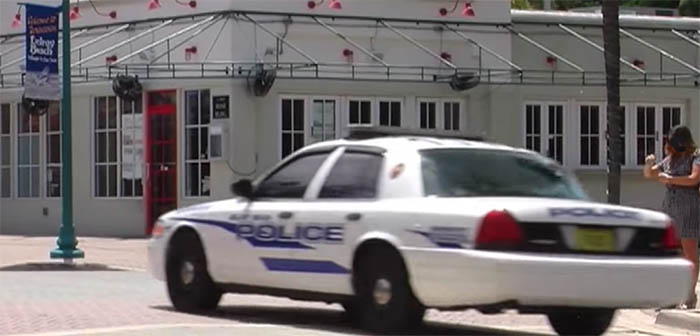
south florida
772-500-9999
561-500-9999
954-500-9999
786-500-9999
239-500-9999
Central florida
352-500-9999
321-500-9999
813-800-9999
North florida
904-500-9999
Florida Panhandle
850-500-9999
 Serving all of Florida, 24/7
Serving all of Florida, 24/7Know Your Rights
Pay a Bond online
You will be able to apply for your bail bond directly online without needing to come into our office - available to you 24/7!
1 call or text US for ACCESS CODE!
Start Now!24/7 access
Pay a bail bond online
You will be able to apply for your bail bond directly online without needing to come into our office - available to you 24/7.
call or text US for your ACCESS CODE!
Start Now!After You’ve Contacted us...
Please enter the access code we have provided you in the box below to access the online system. You’ll need to call us for your access code.
Why is it important to know your legal rights when approached by law Enforcement?
When law enforcement or any type of government agency in Florida stops and questions you, it is important to know and understand your legal rights! You should be extremely careful about what you say – choosing your words wisely. Always keep in mind, if you provide a response to any questions, the officer can use anything you say against you in a court of law.

Knowing Your Rights When Arrested or Dealing with Police
Although the punishments and consequences for crimes vary dependent upon the severity of the crime committed, everyone is protected by the same rights initially when confronted by law enforcement. It’s understandable that most people do not want to even imagine being arrested, but it’s wise to know your legal rights ahead of time (just in case).
Florida’s Stop and Frisk Law
This law allows any state police officer to stop anyone he or she reasonably suspects has committed, is committing or is about to commit a crime. Without a warrant, an officer has the legal ability to request identification and ask questions from anyone suspicious. A warrant is not required for the officer to frisk a suspect under ‘reasonable suspicion’ or ‘founded suspicion’ (this means the officer’s suspicion is based on facts by observation). However, an apprehension cannot be based on race or due to the type of location.
The suspect detained must not be held for questioning any longer than reasonably necessary. If sufficient evidence is found and an arrest is to be made, it should be done so immediately. Otherwise, the suspect should then be released. And under no circumstances should an officer relocate the suspect to any other location if not being placed under arrest.
What Are Your Rights When Arrested?
Below are the points you will want to be aware of if you are being arrested in Florida. The police are required to:
- Identify themselves immediately
- Explain to you clearly about the crime (or crimes) you are being charged with.
- Read to you the Miranda Rights, which explain that you have the right to remain silent; any statements that you make may be used as evidence against you; you have the right to an attorney and if you cannot afford an attorney, the court will appoint you a public defender prior to any questioning.
- Allow you to make a phone call to someone on your behalf, such as an attorney, family member, friend, bail bondsman, etc. (It’s important to note that you may have to wait until the end of the booking process before you’re allowed this call).

What Happens if Miranda Rights Aren’t Read to the Arrestee by the Police?
If an officer, while in the process of an arrest, does not read the Miranda Rights to someone under arrest, none of the evidence discovered during questioning will be eligible for use. This includes any type of statement or confession from the arrestee, as well as any form of tangible evidence. Without the knowledge of these rights, the person accused of a crime is not protected from self-incrimination, which is commanded in the Fifth Amendment of the United States Constitution.
Do You Have the Right to Resist Unlawful Arrests?
Before you make any attempt to resist an arrest, you first must clearly understand the definition of an ‘unlawful arrest (aka: ‘false arrest’).
What is False Arrest by Police?
When an officer of law enforcement makes an arrest beyond his authority, this is considered a false or an unlawful arrest. The most widely used example for explaining a false arrest is when an officer makes an arrest due to an insulting comment or gesture on behalf of the accused. In order for a police officer to make a legal arrest, he or she must have probable cause that someone has committed a crime.
What is Considered Probable Cause?
For a police officer to have probable cause that someone has committed (or is currently committing) a crime, he or she must have factual evidence in order to do a search without a warrant or make an arrest. If an officer tells you he simply suspects you have committed a crime without probable cause, that does not provide him or her grounds to take you to jail.
What Evidence Do You Need for Probable Cause?
- Circumstantial Evidence – Evidence that was not directly observed by someone is classified as circumstantial. A good example would be, “I saw John Doe walk into his home and later heard a gunshot”. No one really knows who fired the gun.
- Consent for Search – Anytime a defendant gives his or her consent for law enforcement to do a search in a vehicle or on property, anything found can be used against the suspect
- Expertise – Police officers are trained to be able to identify foul play by evaluating a suspect’s behavior and circumstances at the scene of the crime.
- Information – Statements provided by individuals regarding the suspected crime, including victims and witnesses.
- Observation – When a police officer has watched a crime take place or has witnessed something visually that suggests a crime may be happening.
- Sensory – A police officer suspects criminal activity based on his or her five basic senses, such as smell, sight, taste, touch or sound. Observation by senses meets the requirements for probable cause. A good example of this would be if an officer smells marijuana when he walks up to a car. He then has probable cause to search the vehicle.
Can Police Search Your Vehicle Without a Warrant?
When someone is driving a vehicle and commanded by police to pull over, the officer only needs ‘probable cause’ to search the vehicle. Again, probable cause means factual evidence. If there is no factual evidence, the only way the officer is allowed legally to do the search is with your consent. Nevertheless, too often, drivers are unaware of their legal rights in this situation and give a consent to the officer to search their vehicle. This confusion frequently leads to arrests that may have been avoided.
Can Police Search Your Home Without a Warrant?
No law enforcement official has the legal authority to search a home or business without a valid search warrant unless someone with proper authority grants them access. Once the police have permission to access the property, any evidence found may be used against the suspect or anyone else residing in the home.
If you prefer not to speak with the police, or if you are unsure of whether or not they have a search warrant, it’s best not to answer the door at all. Another way to deal with it is, when an officer knocks on your door, ask if he or she has a legal search warrant. If so, request the warrant be shown to you underneath the door.
Tip: If the police do have a search warrant, they do not have to knock.
What Type of Arrests in Florida Do Not Require a Warrant?
Please utilize the American Civil Liberty Union (ACLU) online information page as a guideline on the appropriate way to respond when approached by law enforcement. The ACLU online information page addresses your rights when stopped, searched, or arrested by a law enforcement officer(s). For non-citizens, learn more about Immigrants’ Rights. Or click here to learn about our immigration bond services. For more assistance on your legal rights, please contact your local Criminal Defense attorney.
FIND OUT IF THERE IS A WARRANT OUT FOR YOUR ARREST
If you or someone you care about is concerned there may be a warrant out for their arrest, call or text a bail agent here at Bail Bonds Now at (561)-500-9999. Our Pay and Go service allows you to resolve a warrant without any incarceration in most circumstances.


Recent Comments